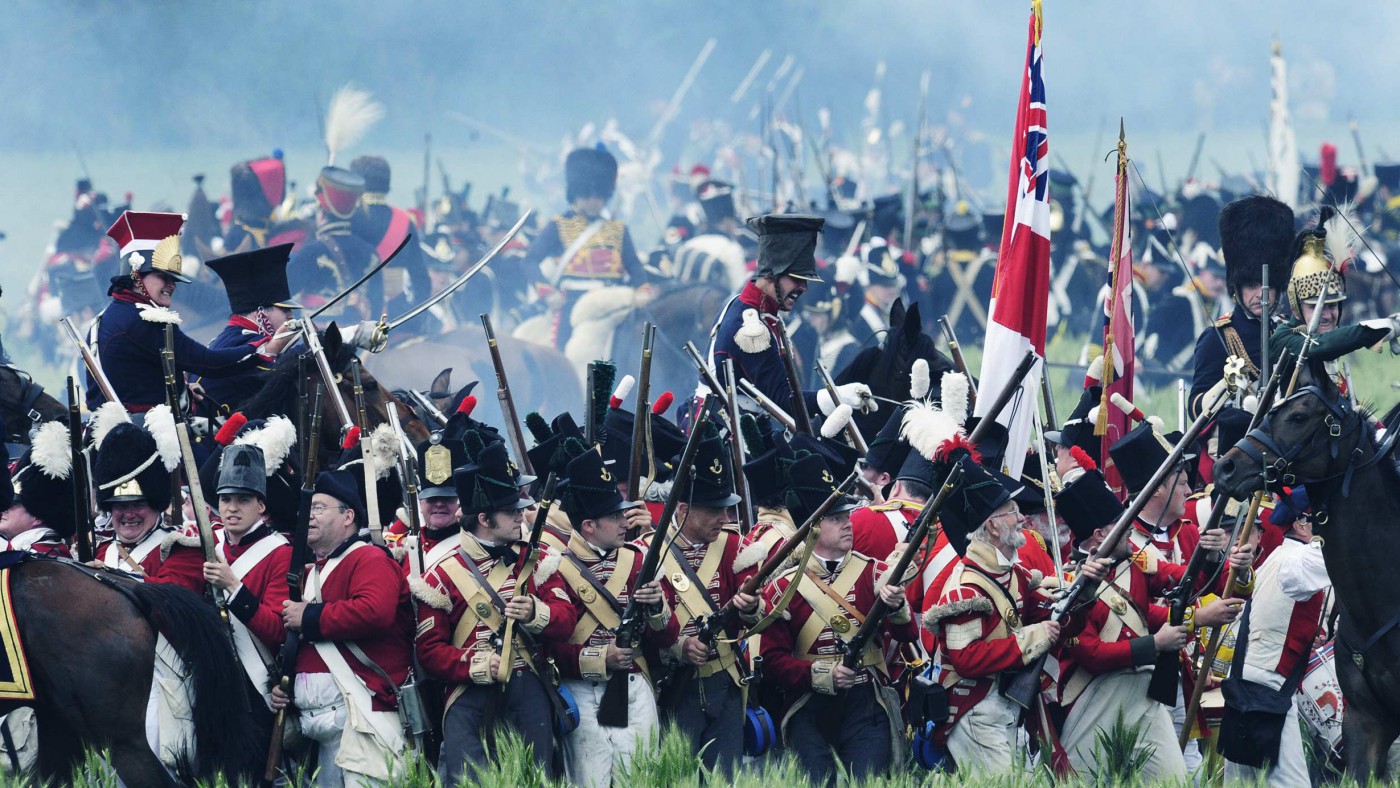Are the Napoleonic Wars worth studying to better understand the current European economic situation? I doubted that until I read Andrew Roberts, an English historian, who just published Napoleon, A life (Viking 2014). One wonders what more can be learnt after some 60,000 books having been published on Napoleon, starting with his own Memories. However, Andrew Roberts offers a new insight on the ideological and military conflict which opposed the English and the French during 15 years until Waterloo, two centuries ago. Mostly relying on some 30,000 letters written or dictated by Napoleon, Roberts argues that the unending wars fought by the French Emperor against his continental foes, Austria, Prussia, Russia, Spain, Portugal, were all an indirect battle against the United Kingdom, which he could not invade. To subdue the British, Napoleon tried to suffocate their trade: he, thus, came with the idea of a Continental Blockade (he named it The Continental System) which would deprive the British of the European market. France versus England was a conflict between free trade and protectionism.
Napoleon had become a prisoner of his own anti-market logic. To forbid trade, he was to take military control of any port between Saint-Petersburg in Russia until the coasts of Italy, an impossible task. The British merchants used American flags, the US remaining neutral, and dealt with European smugglers. Napoleon did not understand that free trade could not be annihilated because it is essential to human nature and to economic prosperity. Recall that in the Soviet Union, the black market became the survival strategy of the Russian people in a Communist economy. The more Napoleon tried to impose his System, the more he impoverished his own people and antagonized the conquered nations. Until 1812: Russians, suffocated by the Blockade, decided to reopen their harbours to the British and turned against the French, until the final victory in 1815.
Actually, Napoleon was a true believer in protectionism as a way to develop the continental economy, even before he imposed the Blockade. Andrew Roberts did not mention a significant controversy, in 1803, between the not yet Emperor and Jean-Baptiste Say, the leading French economist in his time. Say was to publish a Treatise on political economy, which is considered as the first theoretical essay ever written in French on how economics works. In his Treatise, Says explains that the twin engines of economic growth are entrepreneurs – a French word he himself coined – and free trade. Such a book could not be published without authorisation from the government. Napoleon met Say, who also was a respected journalist, and asked him to edit his book by enhancing the positive role of government in economic development and the superiority of protectionism above free trade. Say refused, the book was censored and could be released only after Napoleon’s abdication. Say’s Treatise has since become a landmark in economics, because of its emphasis of “entrepreneurship” – the word became global – but also because of what is known as Say’s Law: “new products create their own demand”, the fundamental aspect of supply side economics, mostly ignored in France until today. No French leader ever mentions Say’s Law; they’ve probably never heard of it.
We now understand why Napoleon is still relevant in contemporary Europe. Numerous political leaders do believe in the government as the engine for growth and do nurture protectionist temptations: these beliefs enhance the importance of the political class and undermine the spontaneous dynamism of civil society. That Say’s Law is consistently proved right (think of Silicon Valley which first churns products which will afterwards create their market) does not alter the ideological fantasies of statist politicians. That free trade brings millions of people out of poverty in China, or India, does not annihilate the temptation for protectionism. Many political parties in Europe are still ready to head for Waterloo and bring down the European economy with them. This year, 200 years after Waterloo, the defining ideological battle will be replayed in countries like Spain or Greece where protectionist and statist parties could continue to win national elections. Like Napoleon, they will celebrate Austerlitz on election night before heading to Waterloo. Regretfully, between Austerlitz and Waterloo, some six million men were killed on the battlefield, not to mention those who starved because of the Blockade. Today, Europe is more peaceful. Napoleonic ideology will not kill people with bullets; it will only make them poorer and unemployed.


